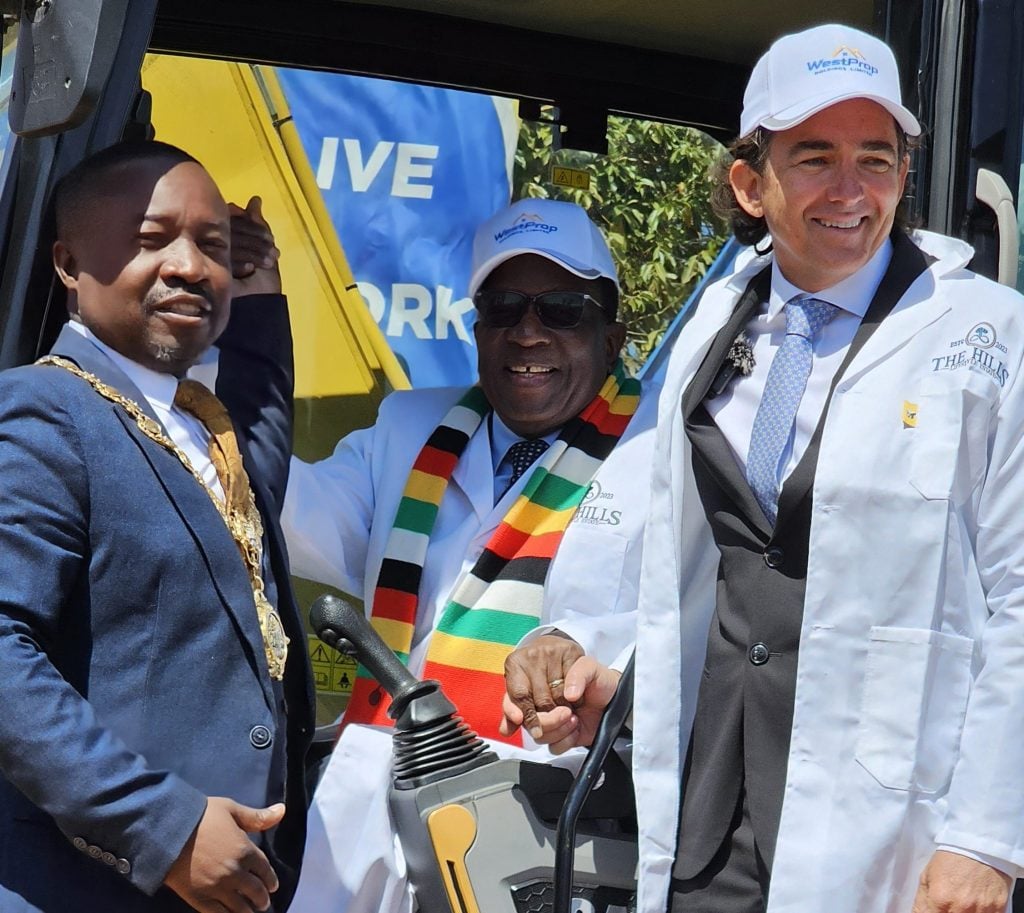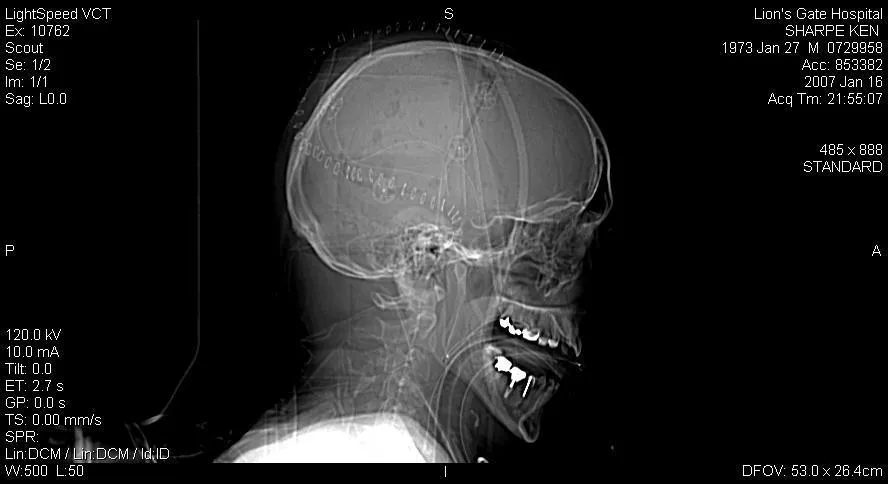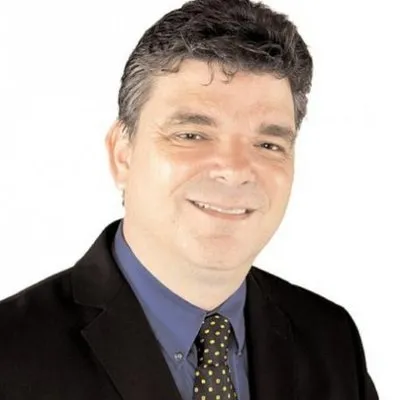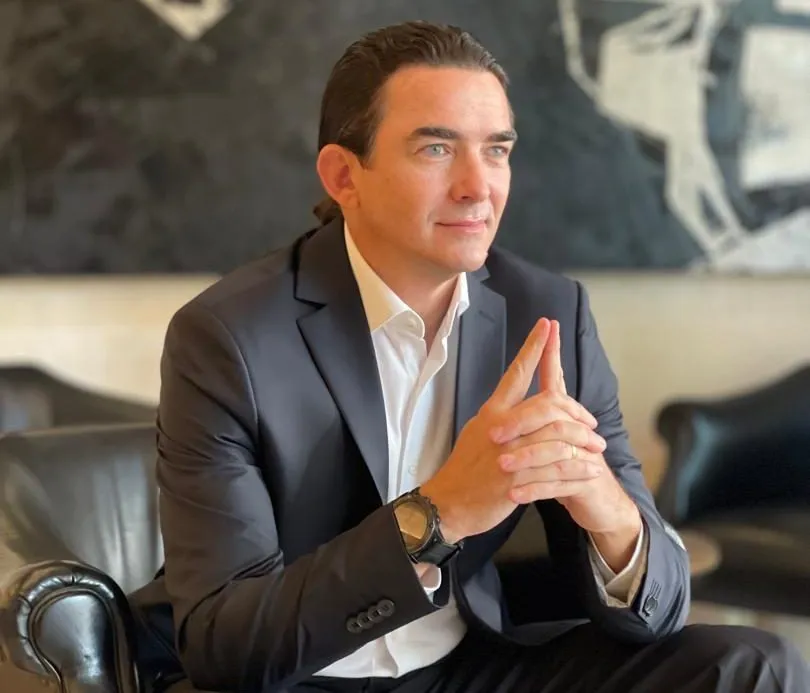Property tycoon Ken Sharpe’s life has been incident-packed, rarely dull and laden with contradictions. Born in Zimbabwe, he dropped out of high school in England aged 17 – yet ended up studying at Harvard Business School. He is a shrewd investor, but hangs onto risky assets in war torn Ukraine and sits at the commanding heights of the struggling Zimbabwe economy; the home of his multi-million-dollar business WestProp Holdings.
Yet he remains unfailingly upbeat about his investments – particularly at home.
“If you drive through Harare today you will see multiple units going up on every single street. People are knocking down old buildings and putting up eight to 12 new units on a stand or doing renovations. A couple of shopping malls have been built in that time too,” he says.
“So the market is very buoyant and it is growing – property [is up] by at least 30% to 40% in the last two years and probably by 300% to 400% since we have been in property.
“It is instilling confidence in people. Our company is putting its money where its mouth is and finishing projects on time and delivering.”
In Zimbabwe – where unemployment is widespread and where his business claims to support 20,000 jobs – he is seen as an asset by the government of President Emmerson Mnangagwa.
But he is a hate figure among environmentalists and rival entrepreneurs opposed to his rampant construction.
WestProp – which turned over $30m in 2024 – has sold 1,300 properties in the last five years, he says. The goal is to sell 20,000 properties on the land the company already owns and to lay a billion bricks in Zimbabwe by 2050. In November, the company reached the 80m brick mark; 8% of the target. Sitting on top of it all is Sharpe, worth an estimated $600m.
Courtroom battles
The building of so-called “smart cities” is one of the cornerstones of his business. One of them – Pomona near the exclusive Harare suburb of Borrowdale – has led to numerous headaches and a pile of lawyers’ letters.
The Pomona site is 273 hectares and belonged to the municipality. Local critics called the land deal illegal and went to court to try to reverse it. They complained that the land was valued at $205m, but had been acquired by Sharpe’s Augur Investments for a mere $20m. He says it was land in return for building a key road in Harare.
“We were building the airport highway and spent about $20m. It was an $80m project and the deal was [that] the government was paying us in land. Of course land, back then, wasn’t valued quite what it is today, so they ran out of land to pay us and we got off the airport highway and claimed compensation, which took a long time. It eventually got settled in the Supreme Court… Since then, we had more land paid to us, as a penalty in terms of the contract, so that kind of doubled our returns and we ended up with $40m or $50m worth of land.”
The project also attracted the ire of environmentalists.
“We also fought the environmentalists, who insisted that we were building on a wetland. Of course, we proved that it wasn’t a wetland and we went through the environmental agencies to obtain our EIA [environmental impact assessment],” says Sharpe.
Sharpe says he was fighting 34 legal cases at one time. He says it is down to a mere six now and expects to clear them this year. “We won all our court cases with people suing us and settled with the government a couple of years ago, so we have got rid of all the big cases.”
Meanwhile the Pomona project has forged ahead. The first phase of 142 stands is finished and homes are being built. Another 550 stands have been added and WestProp says it has only 20 left.
When all is done the company will make $60m in land sales, says Sharpe.
The next big project is turning the 72-year-old Warren Hills Golf Club in Harare – where world-beater Nick Price learned to chip and putt – into a golf estate. Sharpe says $3m of a $10m investment has been sunk into the golf course to bring it up to Professional Golfers’ Association standards.
The $300m project, set for completion in July, will also see 862 homes built.
It all seems to be going swimmingly; but there are two flies in the ointment.

Doing business in Zimbabwe
The bigger of the two obstacles is the currency issue, which is as pesky for the Zimbabwe economy as a cloud of mosquitos. In April Zimbabwe made its sixth attempt to make its own currency from the ashes of the failed money that gave the world the trillion-dollar note.
The brave new Zimbabwe Gold (ZiG) currency, backed by $575m in gold and assets, was launched in April 2024. But in September the central bank devalued the currency by over 40% against the US dollar, with most investors reluctant to touch it. Sharpe is critical of the launch.
“My own view on it is that it was a negative PR campaign because it had the opposite effect [to] building confidence. It probably put the country back three to six months. It could have been avoided completely. Had the ZiG been introduced quietly, under the radar, slowly getting people to use it and build up confidence in the market from the bottom up, it would have been much more successful than doing a top-down kind of forceful approach.
“It is not working, people don’t trust the currency – the government has got more than $500m in gold reserves backing the currency, but no one is using it. The economy is still 90% US dollar,” says Sharpe.
“The biggest problem with [using] the US dollar is the country doesn’t print it, so it doesn’t have its own method of creating funding from dollars – that is partly the reason why the country is not growing at a faster rate.”
The second fly in the ointment is a dearth of capital in Zimbabwe that has hamstrung the economy for a couple of decades.
“We are out of sanctions now but there is still a lot of negative sentiment about,” Sharpe says.
WestProp has listed on the new US-dollar-denominated Victoria Falls Stock Exchange to try to raise more capital. The exchange is small – with a $1.9bn market cap in January after it was recently boosted by the listings of Edgars Stores and Invictus Energy.
If Sharpe is to win through he needs plenty of the chutzpah that launched his career as an entrepreneur when he was a teenager. His father wanted him to be doctor; he wanted to be a fighter-pilot. Neither happened, yet Sharpe found fortune in the air soon after he dropped out of high school as a teenager in the UK.
Sharpe had a friend back home, who worked for Air Zimbabwe, who told him a part was needed from the UK for a Boeing 737. Import restrictions were making it difficult. Sharpe scraped together £1,000, bought the part, tucked it into his hand luggage and flew to Zimbabwe.
“I sold it for £5000; I made a 400% return, which was a very handsome profit! That gave me the capital to kind of start the next things and I eventually got involved in importing vehicles to Zimbabwe from South Africa,” says Sharpe.
Defying death
That unusual streak of luck helped him to survive death on a Canadian ski slope in 2007. Few survive their brain torn being from their skull. Somehow, Sharpe did. It happened in a blinding white flash of spinning trees and snow on the slopes above Vancouver on a family holiday.
“We were going in between the trees, knee-deep; my wife didn’t go – she said it was too dangerous in the powder. I took a turn. I guess I hit a rock under the snow because, knee deep in the powder, you can’t see… I spun back and hit a tree and my brain was severed from my ear to my jaw about 12.8 centimetres. The membrane was ripped off the skull and it profusely bled for the next couple of hours.”
Luckily, a nearby medic slid to the rescue. On the way down the slope the medic decided the now unconscious Sharpe – whose brain had been severed cleanly from his skull – needed an operation in Vancouver more than two hour’s drive away. Sharpe was too fragile to airlift; in the ambulance he was too weak to know of the perilous road journey he faced.
“Lifting the brain off the stem of the nervous system shut down my vitals; I was pretty much dead, on a life support machine, on a ventilator. I had been through hell up to that point, it was quite a scary experience.”
Those two hours in the back on an ambulance rumbling towards Vancouver proved pivotal for Sharpe. “In that ambulance, being completely incapacitated, looking at the ceiling and thinking that’s it, I am going to die, and if there is a God: please just let me keep my eyesight… then complete darkness,” he recalls.
“I woke up five days later; life took a different turn for me. You have a sudden realisation when you are dying that you are very fragile and vulnerable and not in control of your own life. When it goes, it is gone. You don’t get given a second chance. So, I feel I was given a second chance by God, and I have a purpose in this life, and I am very grateful for it. I have realigned my life and values and principles and focus on more things to do with long-lasting effects not only for this life, but for eternity, than perhaps I had before.”

Ukraine punt
This existential moment steeled Sharpe for the court battles and opposition to his business, as well as another challenge: investing in war-torn Ukraine.
He owns a 100,00-acre farm and a solar project on contracts guaranteed by the embattled government. This is an investment made partly on sentiment – his wife is Ukrainian and he has visited the country many times.
“It is on the back burner. I went there in October 2023 for about two weeks. That was the first time I had been since the war started. Until there is clarity about the end of the war, I don’t think it makes sense to invest anymore,” he says.
“Government is not really paying – we get like 10% of the debt paid. Most of it accumulates because they haven’t got the funding. Essentially the government is the payer and if they don’t have the money we don’t get paid. Let see what Trump does. If he doesn’t end it, I fear it could go on as long as Putin is alive!”
With his penchant for emerging unscathed from tricky situations, few would bet against Sharpe turning adversity into ultimate profit.
Want to continue reading? Subscribe today.
You've read all your free articles for this month! Subscribe now to enjoy full access to our content.
Digital Monthly
£8.00 / month
Receive full unlimited access to our articles, opinions, podcasts and more.
Digital Yearly
£70.00 / year
Our best value offer - save £26 and gain access to all of our digital content for an entire year!

 Sign in with Google
Sign in with Google 



